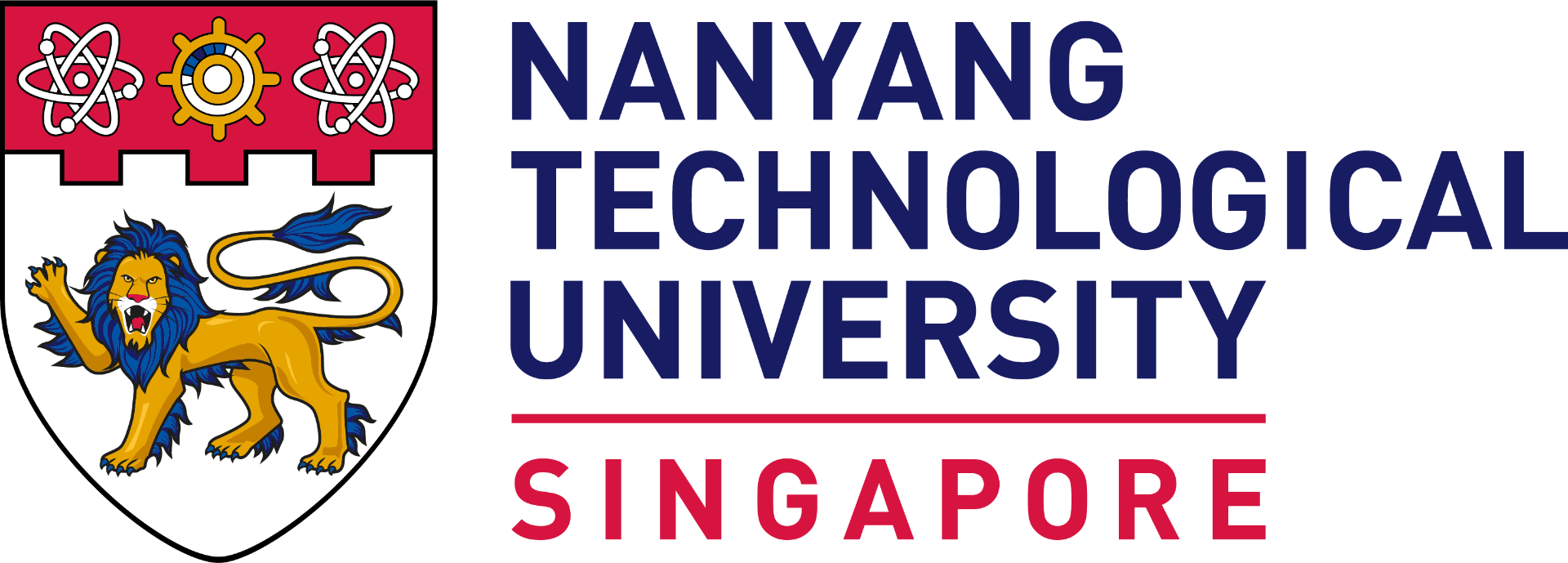With NTU’s support, these enterprising students and young alumni are shaking things up with their bold new ventures
by Tan Zi Jie
GO GREEN WITH A POTATO CUP
The fresh take
In a zero-waste world, the humble sweet potato peel has three lives. First as spud skin, then as a coffee cup and finally as fertiliser. This isn’t a futuristic scenario, but a circular economy project Daniel Foo, a Mechanical Engineering student, is bringing to life.
He found a way to turn leftover sweet potato skin waste – obtained from food court chain Koufu’s factories – into cups or containers that can be composted after use.
“The idea is simple. Grab our Revital cup for your takeaway coffee from the food court. After getting your caffeine fix, simply drop the used cup into a special bin to get a voucher. The used cup is then composted into feed, potentially for fish, black soldier flies or even mushrooms,” explains Daniel.
Making it happen
The idea won big at the recent Hungry for Change Challenge, where Daniel’s team partnered Koufu to reduce food waste and single-use packaging, and bagged $20,000 to pilot it.
Creating a viable eco-cup — from breaking down the skins for cellulose pulp to concocting an organic binder or glue to hold the pulp together – required months of experimentation at NTU’s materials science and food tech labs.
Engineering grad Fernando Tan and Chemical & Bioengineering undergrads Eileen Paw and Marcus Wee came on board to help create the coating that can keep the cup waterproof for about 12 hours. The team tapped NTU’s Ian Ferguson Innovation Fund and were supported by Prof Mary Chan, a chemical engineering expert at NTU.
What’s next?
The challenge now is to automate the manufacturing process in a cost-effective and food-safe manner.
That’s where NTU’s incubation support comes in. Guided by entrepreneurship mentors, Daniel is now developing and testing his final product at NTU’s Open Innovation Lab. He aims to pilot Revital at a Koufu food court in early 2025.

REVITAL FOUNDER
Daniel Foo, Mechanical & Aerospace Engineering, Year 3

GAMES THAT SPOT DEMENTIA



RECOGNAIZE CO-FOUNDERS
Mohammed Adnan Azam, Mechanical Engineering grad (Class of 2022) who develops brain health apps at Dementia Research Centre (Singapore)
Prof Nagaendran Kandiah, director of NTU’s Dementia Research Centre (Singapore)
The fresh take
Dementia is on the rise in rapidly ageing Singapore, driving up healthcare costs. But what if there was a quick, affordable way to catch it early?
ReCOGnAIze is a games app that detects pre-dementia in just 15 minutes.
Why it’s a game-changer
“By the time a patient forgets their father’s name and sees a doctor, it’s likely too late. Severe memory loss may mean dementia, an irreversible brain disease,” says the app’s co-founder, Mohammed Adnan Azam.
The app identifies pre-dementia – subtle signs of mild cognitive impairment – so doctors can prescribe medicine or other treatments to better manage the condition.
Right now, there’s no fast screening tool for the pre-dementia stage, but ReCOGnAIze could change that if it reaches clinics and hospitals soon.
“Creating a clinical games app involves dealing with dense medical research, healthcare regulations and software development. My mechanical engineering degree has trained me to be agile and responsive – skills that have come in handy in this startup journey.”
Adnan, who is doing a PhD in neuroscience
Making it happen
The app’s games are built from clinical findings and ideas from NTU’s Dementia Research Centre director Assoc Prof Nagaendran Kandiah, and developed with Adnan, an NTU Mechanical Engineering grad.
NTU backed them with a $250,000 grant that helps NTU researchers commercialise their technologies and build a good prototype.
Through four games, the artificial intelligence-powered app swiftly determines if the player has a high, moderate or low risk of early dementia.
A study with 200 Singaporeans showed that the app is 89% accurate.
What’s next?
Trials with their first customers, a handful of neurology clinics, start in early 2025. The goal is to sell the app to hospitals and clinics for screening high-risk patients.
With extra funding on the way, the team is also working on a robust diagnostic tool that pairs the app with blood tests to detect brain diseases.
CRACKING THE BILLION-DOLLAR HALAL INVESTMENT MARKET

RIZQX CO-FOUNDERS
Foong Yan Kai, Linguistics & Multilingual Studies grad (Class of 2024)
Ridhwaan Radzi, Business grad (Class of 2023)
Salihin Samsudin, Public Policy & Global Affairs, Year 4
The fresh take
Rizqx.sg is a finance content site similar to Seedly, but for Muslim investors.
Its socially responsible investment approach is guided by Islamic laws, which includes avoiding companies that deal in haram (forbidden) activities like gambling or alcohol.
Why it’s a game-changer
With 240 million Muslims in Southeast Asia, the potential for halal investing is huge – worth billions – but info is scarce and scattered.
“Many Muslim investors don’t realise there are over 100 Islamic-compliant products available – from stakes in private startups to real estate in Dubai – that they can opt for,” says co-founder and NTU Business grad Ridhwaan Radzi.
RizqX fills that gap with articles, forums, independent reviews and tools. Investors can discover and analyse halal investments available worldwide, as well as plan and track their portfolios.
Making it happen
The platform’s founding trio secured $10,000 in initial funds from NTU, and another $50,000 from the government with the university’s incubation support. After a year of building and testing their website and engaging customers, they launched it this September.
What’s next?
This finance aggregator portal is just the beginning. The team dreams of launching an investment fund, a halal brokerage and even a bank in the future.
This story was published in the Sep-Oct 2024 issue of HEY!. To read it and other stories from this issue in print, click here.

